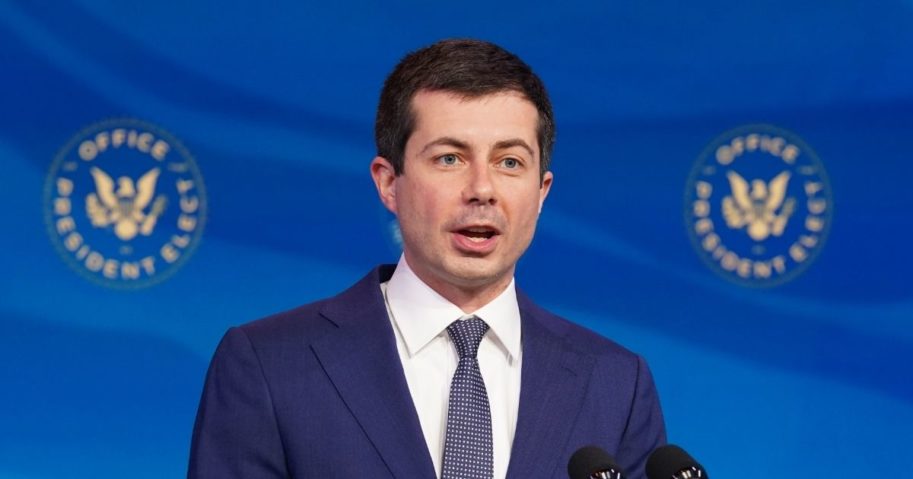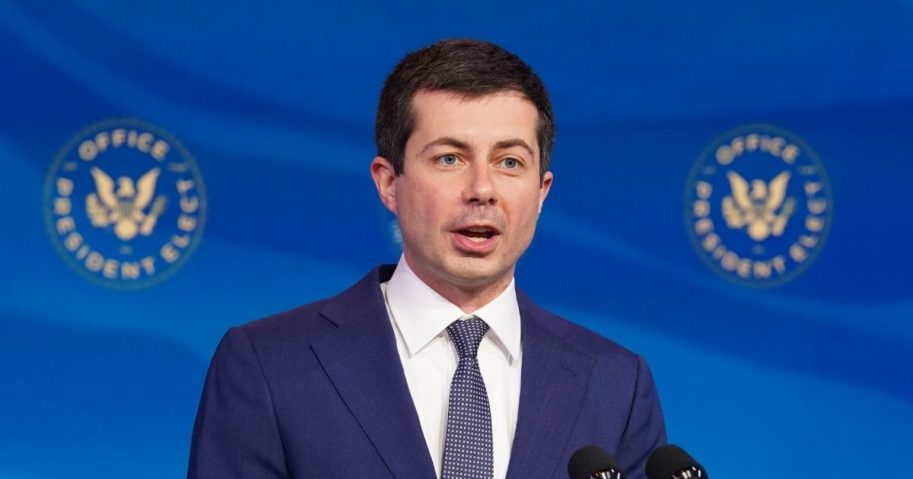

Transportation Secretary Pete Buttigieg remarked on Friday that he is “interested” in an upcoming California ban on new gas-powered cars as the Biden administration weighs nationwide electric vehicle policies.
Last month, the California Air Resources Board issued new rules requiring 35% of new vehicles to produce zero emissions by 2026 — a standard that will progressively rise to 100% by 2035. During an interview with Fox 11 Los Angeles, Buttigieg argued that a rapid transition to electric cars is required to effectively combat climate change.
“It’s interesting to see how the states are trying to go above and beyond what we’re doing at the federal level,” Buttigieg commented. “I’m really interested in these developments, while we continue to set a national policy that’s the baseline for all of this. We need to move in the direction of electric vehicles.”
California unveiled the new benchmarks days before the Golden State requested that residents lower energy usage during peak hours in the interest of averting power grid failure. Among other actions, officials asked that citizens refrain from charging electric vehicles. Prominent policymakers and industry leaders, including Tesla CEO Elon Musk, have warned that the rushed adoption of renewable energy solutions could induce economic harm.
Buttigieg nevertheless argued that speed is necessary for a robust electric vehicle policy. “We’ve got to make sure that this happens quickly enough to help us beat climate change,” he continued. “We’ve got to make sure it happens affordably enough that’s it not just wealthy people, but low-income people who most need those gas savings if they can afford the EVs in the first place.”
Washington, Massachusetts, and Virginia will follow the California Air Resources Board regulations in accordance with previously enacted legislation, although Republicans in the latter state are attempting to overturn the statute.
Meanwhile, the Biden administration has established the goal of procuring only 100% zero-emission light-duty vehicles by 2027 and will extend the same standard to all vehicles in the federal government’s fleet by 2035, according to a fact sheet from the White House. Meanwhile, the administration has set the “ambitious target” of ensuring that electric vehicles constitute 50% of car sales in the United States by 2030.
The Inflation Reduction Act — which contains $369 billion for climate initiatives — includes $7,500 tax credits for new electric vehicles. Energy Secretary Jennifer Granholm recently urged a transition away from gas cars among Americans experiencing high prices at the pump.
“The real truth is that as long as our nation remains overly reliant on oil and fossil fuels, we will feel these price shocks again,” Granholm said. “This is not going to be the last time. The next time there’s a war, the next time there’s a pandemic or another hurricane, these extreme weather events we are experiencing — they will impact the access that we have to fossil fuels.”
Many developed countries are indeed shifting their energy portfolios toward renewables and away from conventional sources. Several member nations of the European Union, which abides by the official policy of becoming “a climate-neutral society” by 2050, heavily regulate fossil fuel production even as they gradually close remaining nuclear plants.
In addition to the severance of Russian natural gas shipments — which Russian President Vladimir Putin said will continue as long as fulfilling orders contradicts the nation’s interests — low hydropower capacity emerging from drought conditions has contributed to energy prices increasing more than tenfold in some markets, according to a speech delivered last week by European Commission President Ursula von der Leyen.
Story cited here.
Scroll down to leave a comment:




